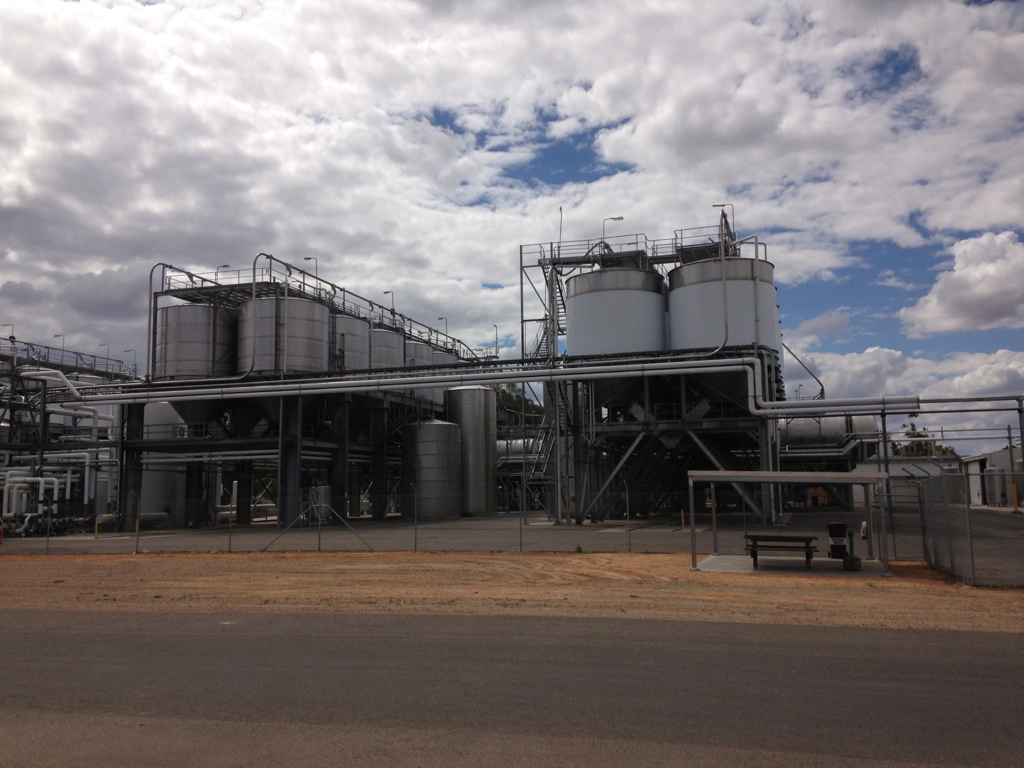Whey is a by-product of the dairy industry with its main component being whey protein. Benzoil’s GrainOut business unit specialises in the niche area of value added product creation. GrainOut has identified alternate opportunities to reusing whey protein as a liquid animal feed in Australia.
Whey is the liquid by-product remaining during cheese production. It retains 45 to 55% of the nutrients in milk, including serum proteins, lactose, minerals and vitamins. In addition, whey protein has anti-microbial, antiviral and antioxidant characteristics.
Historically, the main application of whey protein is animal feed in liquid format. More recently whey protein has been used as a functional food ingredient. New separation technologies have facilitated the production of alternate whey-based products broadening its application and creating added value.
Whey protein can be used as a food ingredient to assist in the management of body weight. Its high level of protein make it a well-suited ingredient in energy and sports drinks. Whey protein can be used to manage pathogens, bile illness and skin problems.
Whey protein production in Australia
Australia produces about 1.65 million tonnes of liquid whey per annum. About 1.6 million tonnes is used for pig feed, while an additional 5% is used as calf milk replacer. While Australia’s liquid whey is almost exclusively used for animal feed, 50% of the total world whey production is now treated and transformed into food products.
Potential value adding opportunities in Australia
There are three main types of whey protein and applications:
1) Liquid Whey Protein
Liquid whey can be supplied directly to farm animals. Liquid whey has high quality proteins, lactose, calcium, phosphorus, sulphur and water-soluble vitamins.
High lactose and mineral levels in liquid whey can limit its uses as a feedstock to some classes of livestock. It can also be used as a fertiliser, however it generates high levels of saline deposit. Transportation costs of liquid whey can restrict its application.
Feeding liquid whey to pigs has been common practice for centuries, particularly when dairy and pig farming was located in the same region. Since the 1950s dairy and pig farming has become specialised and geographically dispersed. The subsequent distance and cost of transport has made this unviable.
Liquid whey is successfully being fed to lactating cows. Cows that use whey as their only liquid feed receive 29% of their dry matter as whey.
2) Powdered Whey Protein
Whey protein powder is produced by concentrating whey to 40 to 70% total solids, and spray or roller drying to a moisture content of less than 5%. Lactose conversion can be completed via a two-stage dryer that allows for crystallisation prior to final dry.
Powdered whey protein has relatively more protein and minerals from the lactose that has been removed. Small quantities of powdered whey protein in animal feed can increase weight gain, protein digestibility, fat digestibility, mineral absorption and retention.
The main market for these products is animal feed, in mixtures with molasses or soya flour. It can also be used in human foods such as ice creams, bakery goods, cakes, sauces and milky derivatives. A demineralisation process can remove the saline taste for its application in dietic and baby foods.
3) Whey Protein Concentrate (WPC)
Large scale preparation of whey protein concentrates can be achieved via multiple methods including ultrafiltration and gel filtration. These methods are beneficial in cost reduction, high process speeds and the protein concentrate being free of salt. Whey protein concentrates logically should be used in foods for humans because of the high quality of protein.
Our market and network research shows using whey protein as a liquid animal feed in Australia is in contrast with global production. An opportunity exists in Australia for powdered whey and concentrate production for application in human food.
Benzoil’s GrainOut business unit specialises in food by-product removal and value-added product generation across a variety of industries. Please contact us to see how we can maximise the value of your food by-product waste
See more at www.grainout.com.au or email info@grainout.com.au or call 0437 965 270.


